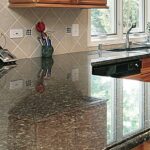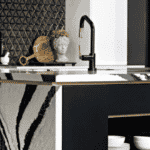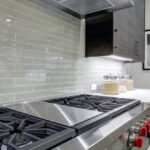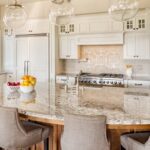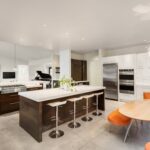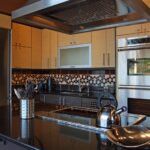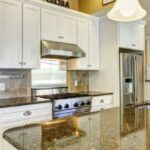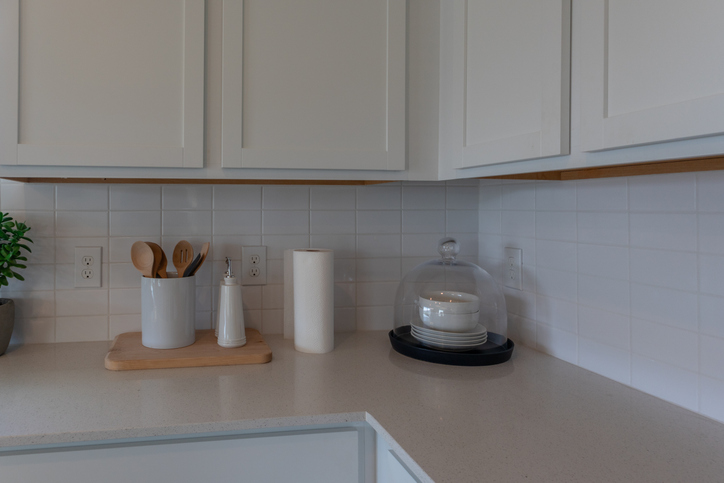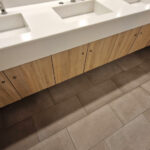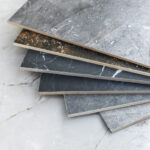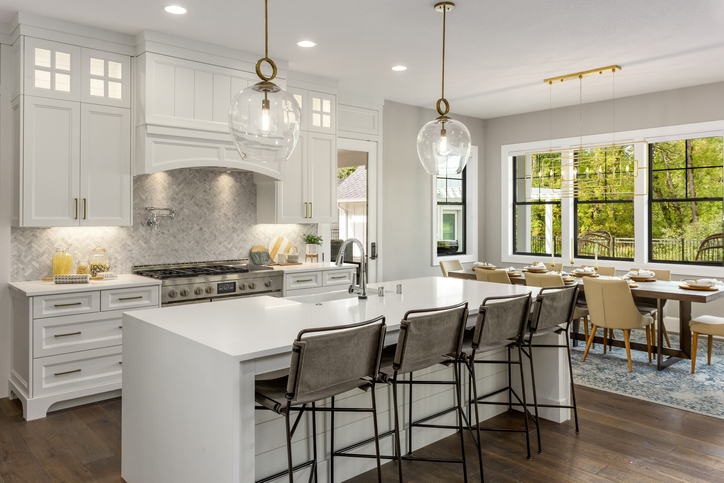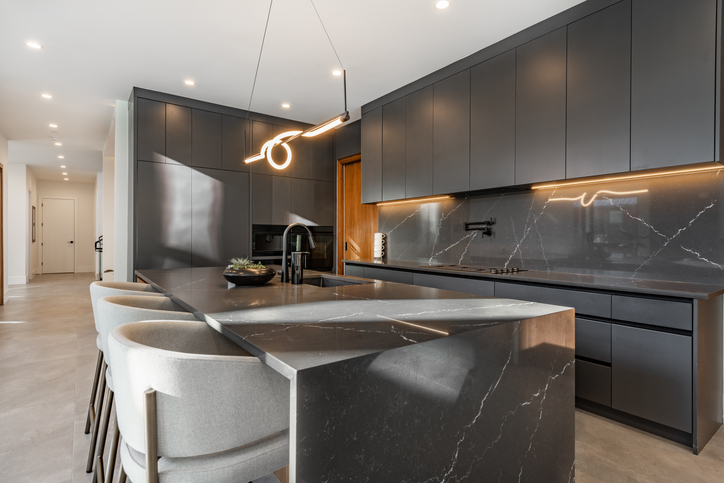Corian Countertops Prices – How Much Per Slab or Sq.Ft.
Understanding Corian Countertops Prices in 2025
In 2025, Corian, as a solid surface material invented by DuPont back in 1967, continues to be a trendy homeowner and designer choice. Acclaimed for its smooth look, strength, and flexibility, the countertops made of Corian compose a highly attractive combination of beauty and functionality. Corian is made of about 33 percent acrylic resin and 66 percent natural minerals to replicate the appearance of natural stone, but with a non-porous, low-maintenance surface. The fact that it can be formed, mended, and personalized makes it a superior choice in present-day kitchens and bathrooms. Nevertheless, cost is one of the most important factors to think about when it comes to any countertop work. So, in this blog, we are going to take a deep dive into the newest 2025 prices of Corian countertops, factors that affect cost, comparisons to other materials, and a way to get more out of your investment. Know the differences between Corian and other countertops.
Current Corian Countertops Prices in 2025
In 2025, the cost of a Corian countertop depends on the quality of materials used, the cost of Corian installation, the complexity of design, and the availability of pricing in different regions. A breakdown of the recent pricing trends appears below:
- Material Costs: Corian countertops come at a cost of $34 to $65 per square foot, depending on the style, color, and finish (matte, semi-gloss, or high-gloss). On a usual 28-square-foot kitchen counter, it comes to between $728 and $1,820 for just the material.
- Installed Costs: Once professional installation is included, the total cost of a 28-square-foot countertop, with a backsplash, sink cutout, and beveled edges, costs between 2,200 and 5,000 dollars, averaging 3,950 dollars.
- Upgrades: Add-ons such as built-up sinks ($100-900) and edge treatments ($10-50 per linear foot) or thicker slabs (3/4-inch vs. 1/4-inch) add cost.
Regional Price Variations
The costs might vary at various locations because of the costs of labor and the availability of materials. For example:
- The price of installations in high-demand locations like New York or Los Angeles can be slanted on the higher scale ($4,000-5,000 for an average kitchen).
- The pricing in markets where it is less competitive can be a little nearer to 2,500-3,500 dollars in similar projects.
- The most common price of a Corian worktop is currently averaging at about $625 a square meter (which, in currency terms, equates to about $78 per square foot), depending on worldwide economic conditions, such as the cost of raw materials and manufacturing developments.
Retail vs. Contractor Pricing
Contractor quotes may not be exactly the same as retail prices at a Home Depot or Lowe’s. As an example, Home Depot sells the Corian for $94 per square foot in selected styles such as Calcacatta Greige, whereas at Lowe’s, one can find such a material as Cameo Cream at the price of $58 per square foot. Contractors, however, may obtain trade discounts, which may translate to 10-20 percent less on materials.
Factors Influencing Corian Countertops Prices
There are a number of variables that may influence the end price of Corian countertops in 2025. Be knowledgeable about these to be a good budgeter:
Material Specifications:
-
- Thickness: Corian comes in 1/4 inch, 1/2 inch, and 3/4 inch. Thicker slabs ( 0.75-inch ) are more robust, but they are 20-30 percent more expensive in comparison with the thinner ones.
- Finish: Matte finishing is the least expensive and costs between 15 and 50/square foot; semi-gloss and ultra high-gloss might cost even more since they require further processing. Those with a high-gloss finish are not popular in the kitchen because of the scratches.
- Color and Pattern: There are more than 80 color variants, and some premium or trending designs (e.g., Carrara Lino or Stratus White) are more expensive. Light tints can be generally cheaper and simpler to maintain.
Installation Complexity:
-
- Installation Costs: Professional installation has an average of $50 to $80 per square foot or $75 per hour, and a typical kitchen would take an average of 5 or 6 hours. Designs and cutouts that are non-standard or aged countertop removal (50-350) increase the expense.
- Extra Features: Built-in sinks, smooth backsplashes, or custom edge designs (eg, bullnose or ogee) add more labor and material costs.
Economic and Market Trends:
-
- Raw Material Costs: Fluctuations in acrylic resin and mineral prices, driven by global supply chains, impact Corian pricing.
- Manufacturing Advancements: New technologies, like DuPont’s Deep Color Technology, enhance aesthetics but may raise costs for premium lines.
- Environmental Regulations: Stricter sustainability standards in 2025 may increase production costs, slightly elevating retail prices.
Demand and Trends: The demand for Corian is fueled by its advantages, which include a smooth, porous surface with repairability that is favored by both modern and minimalist designs. The prices might be pushed up by high demand for a certain color or trend.
Design Trends for Corian Countertops in 2025When speaking of 2025, Corian is still quite popular due to its superb versatility that enables it to perfectly fit the modern and conventional design styles. Being solid surface products, the flexibility of color, texture, and form that Corian has to offer is unmatched, making it an automatic favorite among homeowners, interior designers, and architects in their quest to make functional but aesthetically pleasing spaces. The trends described below establish the way Corian is transforming the role of kitchens and bathrooms in 2025, combining the spirit of classical sophistication, modern minimalism, and statement design with a focus on sustainability. Corian has also been popular for the Corian shower pan.
Conclusion
In the year 2025, corian countertop is still a popular choice with material prices being between $26 and $65 per square foot, and a typical kitchen will cost around $3950 to have installed. You can make an informed decision by identifying what drives price, material specifications, installation complexity, and market trends. The comparison of Corian to quartz, granite, and laminate brings in the exclusivity of Corian in terms of design continuity and the ability to repair it and admits the drawbacks, e.g., sensitivity to heat. One can streamline investments in a Corian countertop that upgrades the kitchen or bathroom with smart decisions like shopping around or settling on stock offerings.



